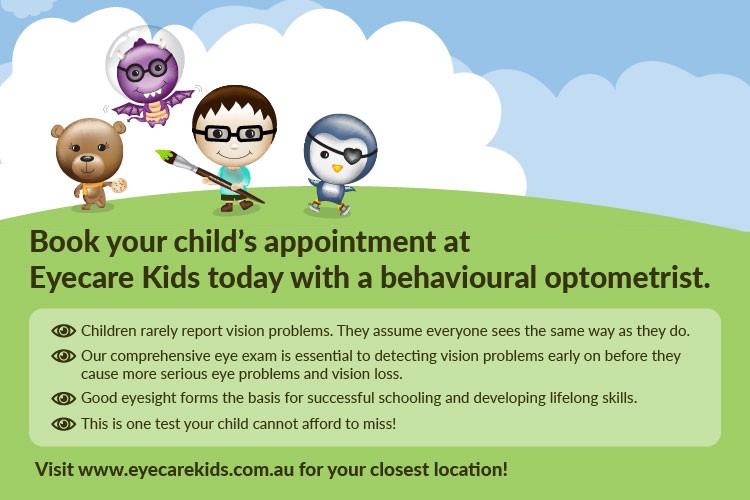ADD/ADHD or a vision problem?
The symptoms of ADD/ADHD and vision problems can sometimes be very similar and both debilitate a child’s ability to learn and interact with others in a social setting. If your child has been or is suspected to had ADD/ADHD an eye examination should be done.
How is ADD/ADHD related to vision?
Some common symptoms of ADD/ADHD such as a short attention span, trouble following instructions, avoiding or disliking tasks needing mental effort, poor attention to detail are also symptoms when a child has a vision problems.
A child with eye teaming, eye focusing or eye tracking problems will find it difficult to maintain focus when reading. Studies show that approximately 20% of school-aged children suffer from eye teaming or focusing deficits which make remaining on task for long periods of time difficult.
Children with eye teaming, focusing, and tracking problems are often unaware of their vision problem. Many do not report symptoms like eye strain, double vision, or blurry vision. Instead, when it become a challenge for their eyes to maintain clear single vision on the page and they experience discomfort, behaviour and attention is affected. They may appear to be distracted, have a short attention span, make careless errors, and fail to complete tasks.
Furthermore a child who struggles to recognise the same word on the page, finds it hard to follow instructions and has poor memory skills may have delays in their vision processing skills.
What is the scientific research?
Interestingly, a recent study found that children diagnosed with ADHD were three times as likely to have eye teaming problems than children in the rest of the population.
Dr. David B. Granet, pediatric ophthalmologist, explains that because this kind of eye teaming problem causes children to have difficulty keeping both eyes focused on a close target, it becomes more difficult for them to concentrate on reading which is one of the ways doctors diagnose ADHD.
As a result of his research, Dr. Granet recommends that no child be diagnosed with ADD or ADHD until their visual system has been checked because the chance of a misdiagnosis is just too great.
Strabismus, Volume 13, Number 4 / December 2005, Pages: 163 – 168
What can we do?
Our behavioural optometrists are trained to detect and manage cases where attention deficit issues are related to vision, focusing, eye teaming, eye tracking and perceptual vision problems. Spectacles and vision therapy can be provided if these problems are identified.
While we understand vision is not the only cause of ADD/ADHD, if a child displays behaviours of ADD/ADHD, it is worthwhile to investigate their visual system to ensure that it is not hindering their learning experience.

